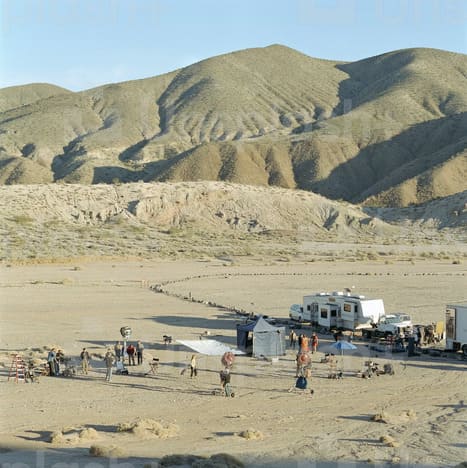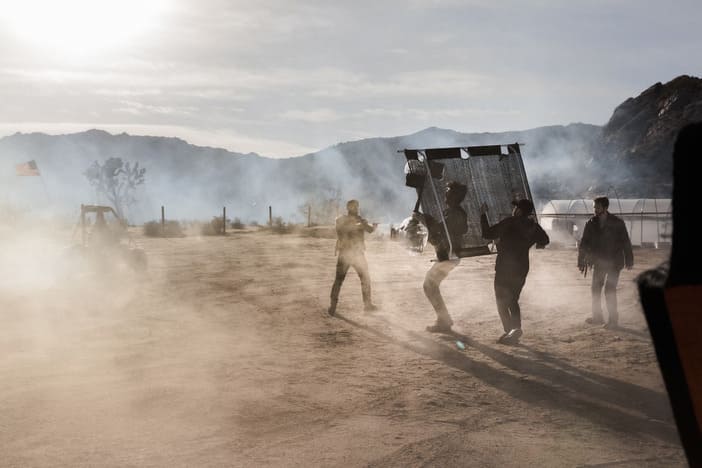Film Production Management Explained – What is Production Management?

Film production has an incredible amount of moving parts, and people involved. Think of all the names you see on the credits at the end of a film. There can be hundreds or even thousands of people involved, which means that there is a big role to play in film production management.
In this guide, a sort of film production management 101, film projects are broken down and the role of production manager is explained, as well as some techniques and golden rules to ensure that the whole production goes to plan.
There are so many steps to get a film from its idea and conception through to being delivered. The film production manager is responsible for seeing the idea through to completion and supporting all areas of production.
The Role of Film Production Manager
There is a specific role within the industry, and film production management is a career choice that people with the right skills and passions can undertake.
The Directors Guild of America actually calls a production manager a “unit production manager” so this is a term you may hear a lot, too. They can be used interchangeably.
The production manager handles all aspects of the movie or other production that are not directly creative. For instance, they do not make decisions on what the film will look like, or who will be in it, but they do make a lot of decisions known as “below the line” decisions.
This means they can make decisions regarding budgets and schedules, for instance. Film production managers may also play a huge part in creating the plan and production schedule for a film. This helps to convince those investing in the film that it is a worthy project, as well as providing a more targeted and coordinated effort when it comes to shooting.
Without somebody managing these sorts of details, it is easy to end up with production delays.
Role of a Production Manager – The Vital Tasks
Let’s dive into the role itself and what it means to be a production manager, and how they keep things organized throughout the making of a film.
There are some tasks that are absolutely crucial at every stage, and managing the steps from the very first ideas through to final edits is a big part of the role. Some use project management software for film production, which helps to keep everything running smoothly and to a specific timeline. Issues can be rectified if it turns out that they have arisen, and they are usually quickly spotted by a good production manager.
We’ve divided their roles into the different stages of production a film has, from pre-production steps through to signing off on the film. It is also worth saying that each project is slightly different. If you take a look at our portfolio, you will see how many different kinds of projects we have delivered, and the amazing, professional job done on each. Every single project worked to its own schedule and timescales.
Pre-Production
During pre-production, the role of a production manager may include:
- Creating the schedule and dates. This means planning when shoots are going to happen, as well as a timeline for staff to work to when they are creating the movie.
- Location scouting. Though there are likely to be creatives involved here, it is also worth having production managers involved as they can explore the logistics of using a certain location.
- Working out the budget. There is likely to be a budget for the film to work to, whether you are making a simple commercial or a full feature film. The production manager can help to allocate that budget properly and ensure every task has enough.
- Hiring. There is likely to be a lot of hiring, specifically on large productions. As well as crew for the shoots this can also include things like catering staff and those to help facilitate the shoot. Production managers may also have their own crew of people working with them to help ensure things stay on schedule, and help with administrative tasks.
- Other logistics. This can involve things like booking hotels for crew and cast, sorting out lunches, and anything that is specifically required for the production. The role can really vary when it comes to these details.
Communication is key throughout the whole project, but at this stage, the production manager on film projects will work closely with the producer to help to work out a schedule that leaves enough time for each of the creative aspects, and supports the development of the script and story all the way to completion.
During Production
Moving into the production phase, what are the specific roles of a film production management team? Their time is likely to be spent both on set, and working away from set, often in an office or specific production office if the project itself is big enough to justify one.
The roles that will start (and continue) during production include:
- Overseeing all aspects of budgeting. Things rarely run perfectly to plan and going over budget can be a big problem for a film production, which means one of the roles of a production manager is keeping this in control as well as reallocating budget as required.
- Legal aspects of production including contracts and permits. If you shoot with Insight Studios in beautiful and historic Saudi Arabia, all of the permits and legalities of shooting are dealt with for you.
- Working with the crew. Communication is really vital at this stage too, the crew should be supported and this means they should know about any restrictions and receive plenty of guidance to help them stay on target. Plus, if anything goes wrong, the production management needs to know about it.
- There may also be the role of regularly reporting. This helps to keep a record of how things are going and can also help people to clearly communicate. A “production report” can even be a daily thing on big productions.
Post-Production
A lot of the role of a production manager is done by the time they get to post-production. It is often as simple as overseeing the schedule when it gets to this stage, ensuring everyone stays on track, and that the final film is ready when the time comes.
Though not so heavily involved in this stage, it is possible that things can go wrong if post-production is not properly managed.
What Skills and Qualifications a Production Manager Needs

So, how do people become production managers anyway? What are the skills that are required in order to be a production manager?
- A college degree (usually). This is not always required but if you do not have a degree in a related subject such as film studies it is less likely that you will be working as a production manager on a film set.
- Organization skills. In this role, you’re not just responsible for organizing your own affairs, you are also responsible for organizing a whole team, and keeping tabs on what is going on, sometimes across a huge production. If you don’t count this as something you are skilled in, you are going to struggle.
- A knowledge of the industry. Those working as production managers are going to need to know about film and how it works, probably having worked in the industry for some time in a variety of different roles. You may have learned the trade working under a production manager on different projects.
- Communication skills. It is going to be our role as a production manager to create a plan for other people and to communicate with them regarding that plan. They can also act as a link between those doing specific jobs in the team, as well as having to communicate with a variety of external companies, organizations, and individuals.
Tips For Great Film Production Management
To ensure great management of a production:
- Always be clear with roles and who is responsible for what.
- Track the progress throughout, including reporting on the days or weeks as they go by.
- Remember that it is crucial to track the time that is passing, and to keep everyone on target when it comes to meeting the timescales that have been outlined.
- Work closely with film producers. You need to work together to facilitate the creative ideas of the project and help it grow and flourish. Producers should stick to your guidelines but you also need to listen to their needs.
- Be flexible. Things can change during the production of a film and it is important to be flexible with things and make changes on the go.
- Put together a good team. On a big production, if you are working with multiple people then it is a good idea to spend time building a quality and dependable team. Sometimes, even the best production managers can’t do everything on their own.
With Insight Studios, our experienced team can manage every step of your production whether you are creating a short commercial or a lengthy film. We’ve got the skills to ensure a successful shoot, taking your spark of an idea and turning it into an exciting and professional film, ready to bring you results. Reach out today to start bringing your idea to life.